Title: Shakespearean actor
Birthdate: November 14, 1833
Death Date: November 8, 1885
Plot Location: Section 149, Lot 1
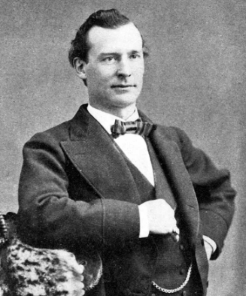
The birthplace of John Henry McCullough was by some accounts in Londonderry and by others in Coleraine, County Antrim, Ireland. His mother died in 1846, making him and his sister Jane orphans, so their uncle sent them to live with their cousin in Philadelphia who made chairs. John was 16 at the time and worked as a chairmaker, then was married at age 17.
He frequented the theater and began imitating actors by reading and memorizing Shakespeare. He made his first appearance on the stage at the Arch Street Theatre in 1857. One of the members of the stock company that was playing there that season was billed as J.B. Wilkes, but his real name was John Wilkes Booth. He was one of three brothers who were actors, like their father.
John played small parts there at $4 a week but he studied hard and refined his craft. He joined a theater company in Boston, then returned to Philadelphia’s Walnut Street Theater in 1860 where he caught the attention of a Philadelphian who was the most famous Shakespearean actor of the day, Edwin Forrest.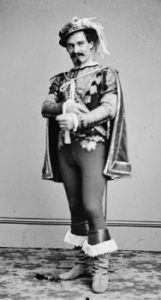
John was under contract to act with Edwin’s company for many engagements in the East until 1865. From there he played in San Francisco and his reputation grew, with engagements in both this country and England. Edwin thought so much of him he left all his prompt books to John when he died in 1872.
John also worked for Edwin Booth, the assassin’s older brother who, incidentally, was named after his father’s friend, Edwin Forrest. Edwin Booth opened a theater in New York in 1869 employing John and another actor, Edwin Adams. He is also buried at Mount Moriah and his Notable story is here.
John’s greatest success was playing in the 1820 tragedy, Virginius, although even in this part and as Othello he was coldly received in London in 1881. In newspaper 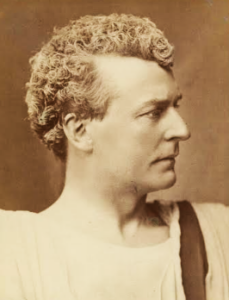 accounts of his death he was critically acclaimed. “McCullough won his place in public recognition and became one of the most popular of all the serious actors of his time, and for quite ten years there was no more prominent figure upon the American stage.”
accounts of his death he was critically acclaimed. “McCullough won his place in public recognition and became one of the most popular of all the serious actors of his time, and for quite ten years there was no more prominent figure upon the American stage.”
On the night of September 29, 1884, he broke down on stage at McVicker’s Theater in Chicago and was unable to recite his lines. The audience, thinking he was drunk, hissed and booed. In fact, John was suffering from early stages of paresis, or partial paralysis. He was later committed to the Bloomingdale Asylum after being declared legally insane. He died at home in Philadelphia from cerebral thrombosis, a blood clot in the brain. Due to his celebrity status, media coverage of his decline and death was widespread.
In 1889, after his death, he was memorialized with a statue in Philadelphia, to which Edwin Booth reportedly refused to contribute. 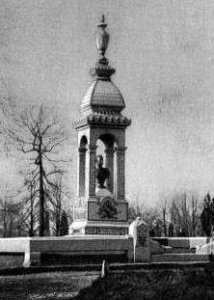 This is his memorial at Mount Moriah as seen when it was built in 1888, before the huge bronze bust in the middle was stolen. It sits on the highest part of the cemetery and, at 36 feet, was said to be the first and tallest monument ever raised to the memory of an actor. His fame brought him many wealthy friends who contributed to its cost of $9300, or close to $300,000 in today’s money.
This is his memorial at Mount Moriah as seen when it was built in 1888, before the huge bronze bust in the middle was stolen. It sits on the highest part of the cemetery and, at 36 feet, was said to be the first and tallest monument ever raised to the memory of an actor. His fame brought him many wealthy friends who contributed to its cost of $9300, or close to $300,000 in today’s money.
John’s son William died four months after he did, his wife died just 14 months later, and son James died six years later, leaving James’ 18-year-old sister Letitia to inherit the estate.
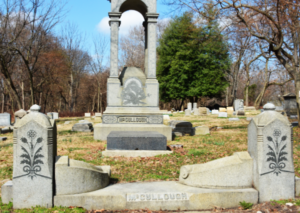
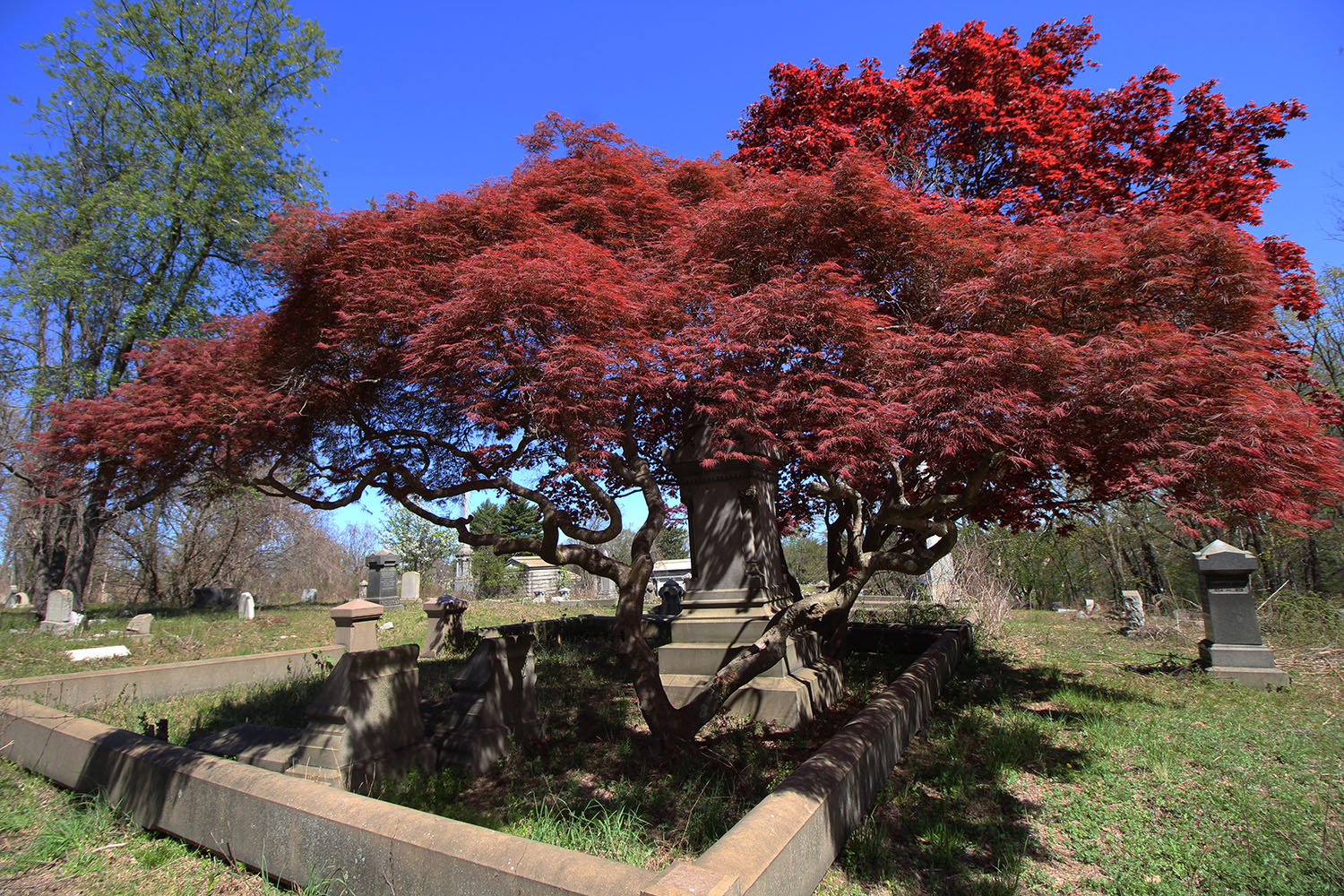
Support the Friends of Mount Moriah
Help us in our mission to restore and maintain the beautiful Mount Moriah Cemetery by donating to our cause or volunteering at one of our clean-up events.

